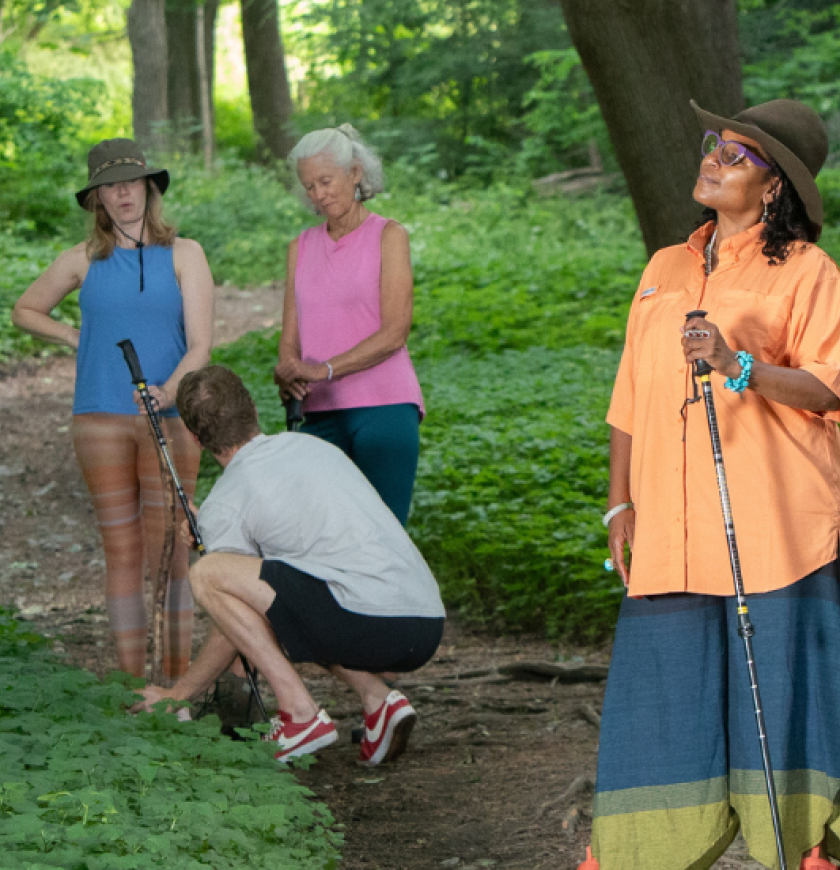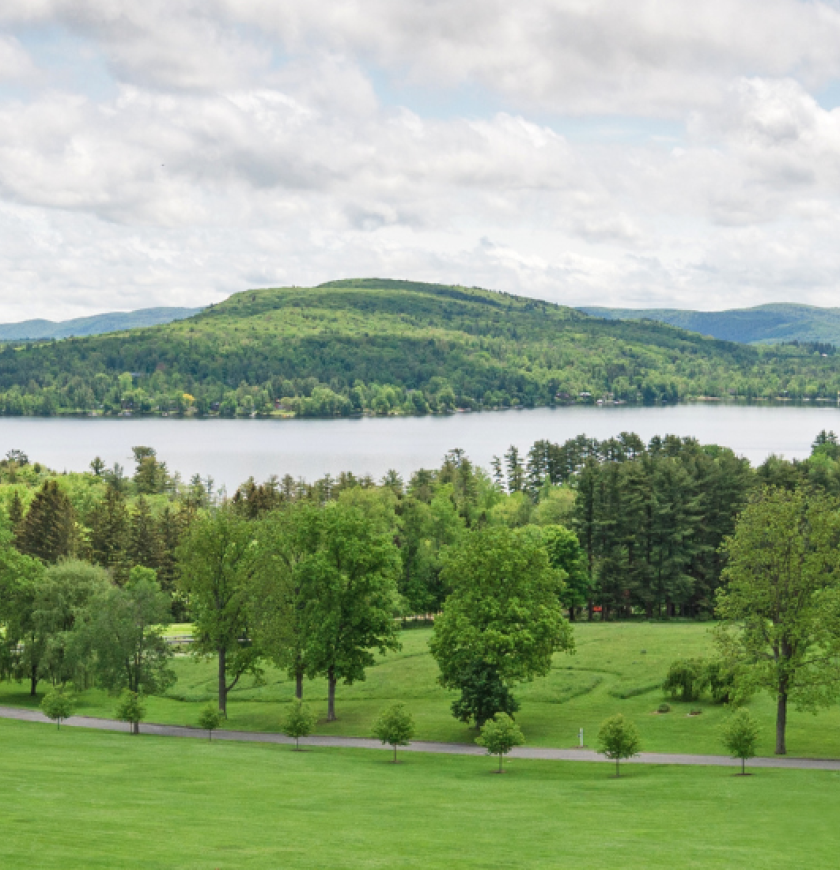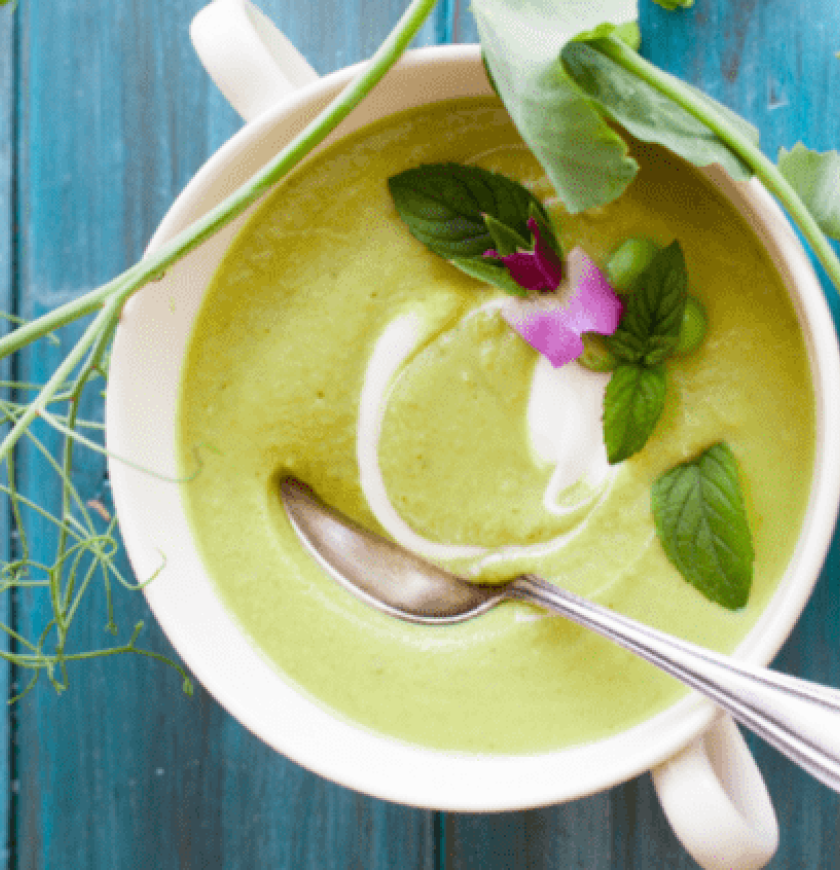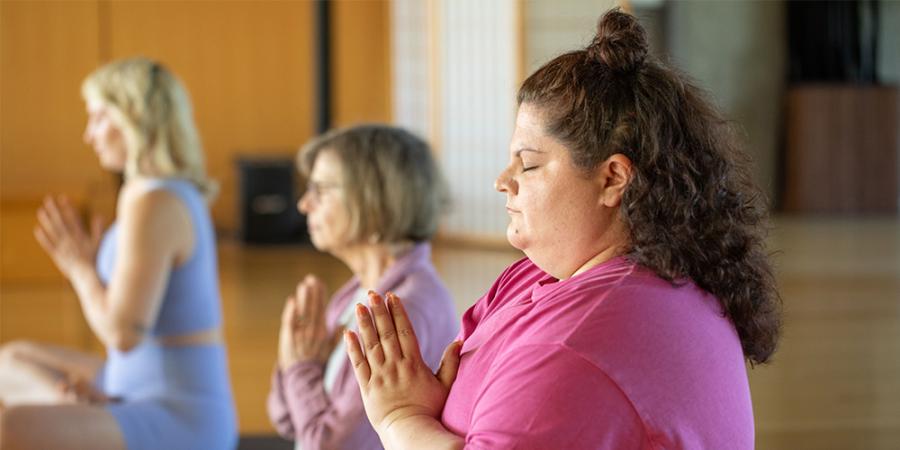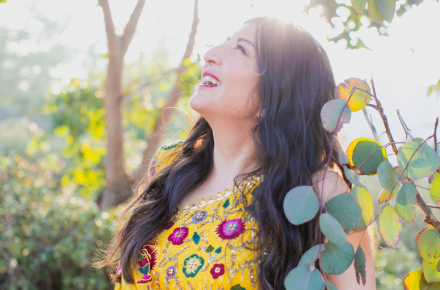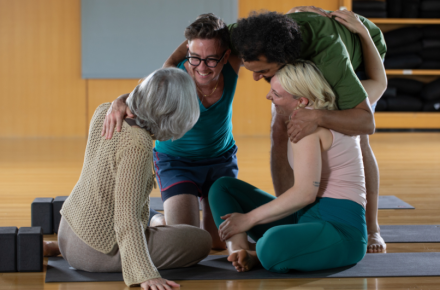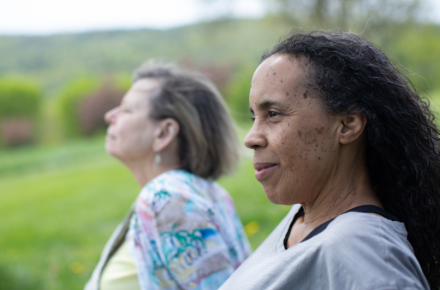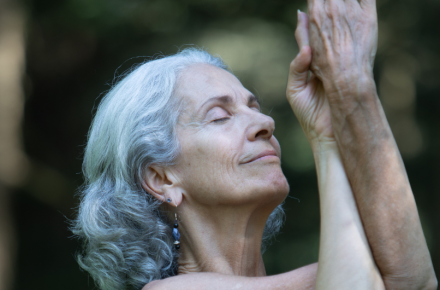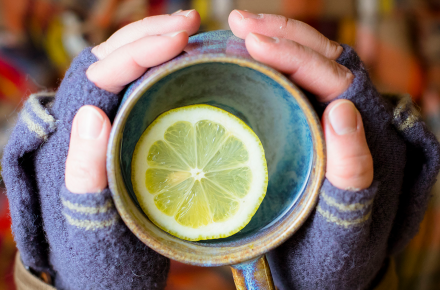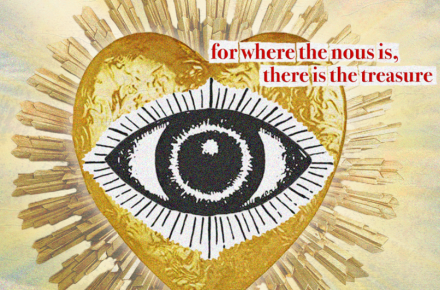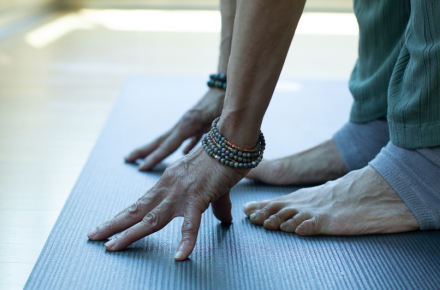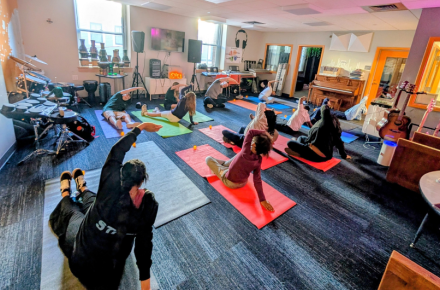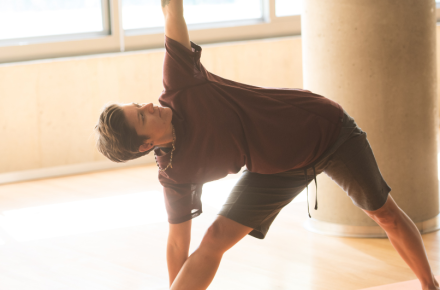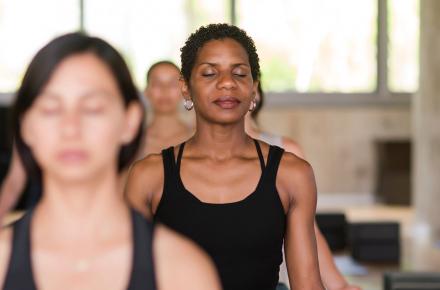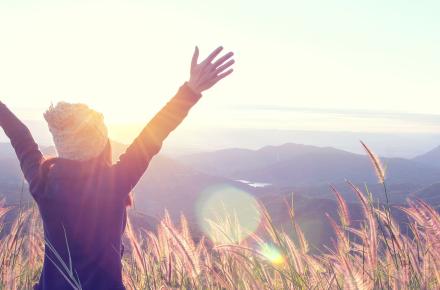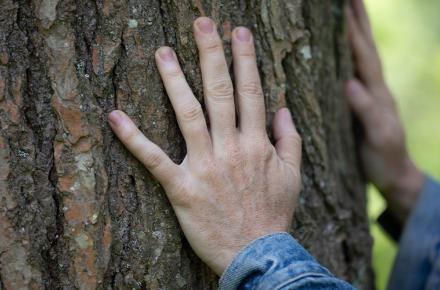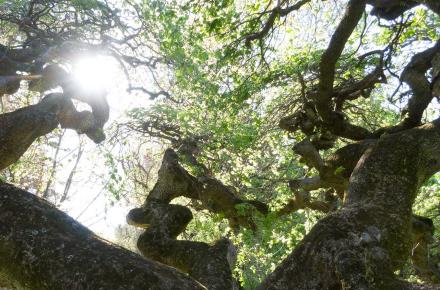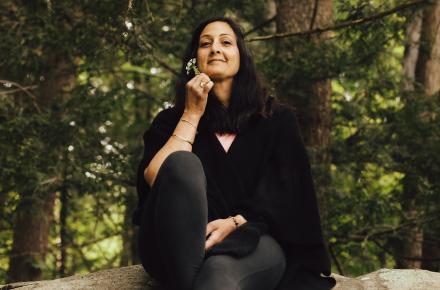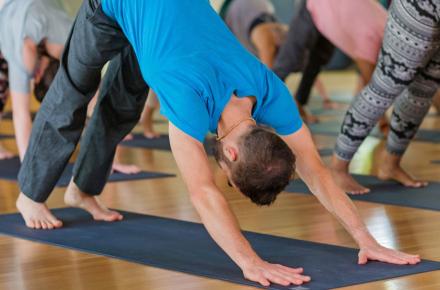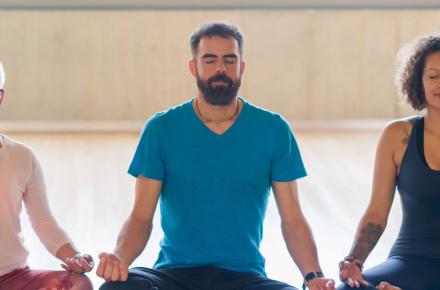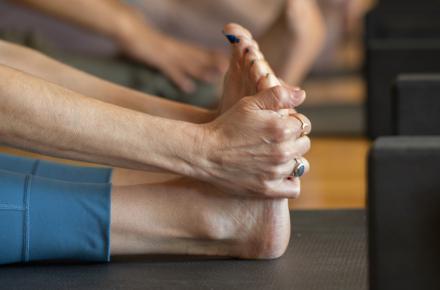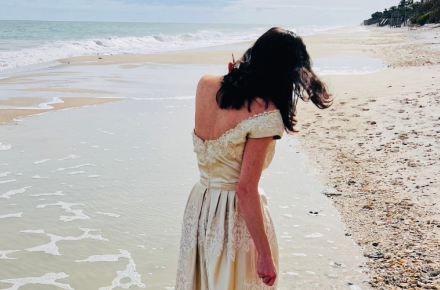What I Learned on My Summer Vacation: Life Lessons from a Family Canoe Trip

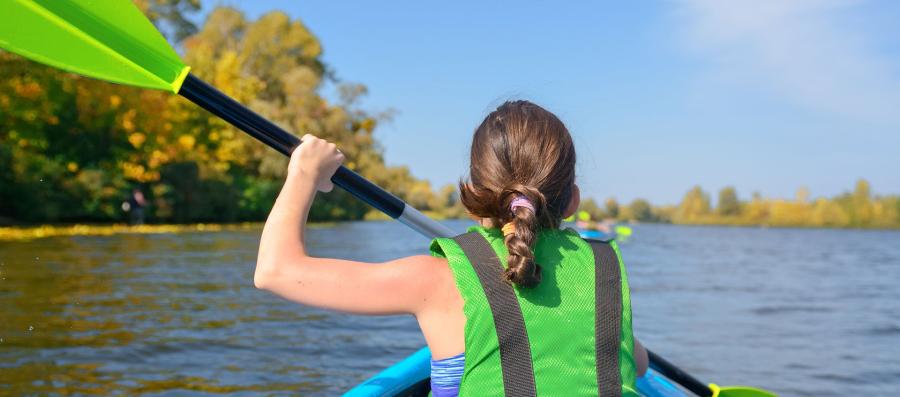
I thought I had this mind-body thing down pat. After more than two decades of practice and a decade of leading the integration of these tools into the workplace, I was an expert in using mindfulness tools for stress resilience. Yet, between a health issue and business growth, I couldn’t paddle fast enough to keep up with demands. I was burnt out.
I know I am not alone. According to the World Health Organization, stress is the “epidemic of the 21st century.”
On one of the darkest days, I remembered a childhood experience that could be described as my first bout of leadership burnout, and the lesson it taught me. When I was a freshman in high school, I was promoted to stern on our annual family canoe trip. The person who sits in the back is the leader of the canoe—responsible for bringing it safely through the challenges of the river and to the next landing point. I received this promotion because my cousin, who was several years older than I but who had never been on a camping trip—much less one that involved three full days of canoeing—was going to be my boatmate.
On the first day of the trip, I was flush with the excitement of leadership. I paddled enthusiastically and vigorously with precise form and all my might. I zealously instructed my cousin in the nuances of paddling, including the J stroke and the C stroke. When we made it to our evening camping spot, I was proud.
On the second day, I woke up tired. I had gotten a blister from the vigorous paddling the day before. I didn’t have any new tricks to share with my cousin. All that was left was the endless paddling. Effort upon effort. As the day progressed, I found myself less excited about the trip, wondering when it would be over. A mini bout of burnout.
On the third day, I absolutely, positively did not want to paddle. I got in the boat, pushed it out into the river, and in youthful rebellion let the river take us. Just sitting in the boat felt good. After a few moments, I noticed a boulder in the middle of our path and steered around it, but then again let the river take us. A little later on, a fallen tree limb reached out to snag us. Again, I steered around this obstacle and then let the river continue to take us. This became the rhythm of the day. No extra paddling, only steering.
When we came to the landing, I was nervous. Would I be found out for my laziness? Would I be criticized for not getting the boat to the landing point early enough? For letting my cousin innocently paddle while I focused only on steering?
My mom, the ultimate paddler, was already on the riverbank. When I asked her how long she’d been there she said, “Oh, about five minutes,” and a sheepish grin came over my face. I couldn’t believe I’d gotten away with it! The difference between paddling versus not paddling was only five minutes! Virtually nothing in a daylong canoe ride.
As we settled around the campfire, I silently reflected on the day. It had been remarkably different than either of the previous days. It was not filled with pride of leadership that alienated my teammate or unnecessary effort that exhausted me. It was filled with skillful action and wise awareness. I helped us avoid the boulder and tree limbs but my other energy—the energy beyond steering—was spent paying attention to the journey. I saw more turtles and blue heron than I had the previous two days. And I also saw how much my cousin needed my calm and kind attention to feel secure in the watery wilderness, and I was able to give it to her. Except for the frisson of breaking a habit, I had felt a sense of—dare I say it—flow.
As I sat in my office remembering this story, I realized I had fallen into the trap of believing that more effort was going to get us where we needed to go, and I was using my yoga tools to help me paddle more. I have seen this before in many of the frontline providers we work with in RISE, Kripalu’s stress-resilience training for those in high-stakes, high-stress professions, such as human services organizations, schools, correctional facilities, law enforcement, and healthcare. They often say, “Before I came to RISE, I was feeling burnt out, and now I can go back to work.” The first layer of benefit from these tools is the capacity to keep going—to create a buffer against the stress and do more than you could without them. But this is a limited run. You can only get so far. And it’s not the biggest benefit you can receive.
The biggest benefit is the ability to use the tools to discern the difference between unnecessary paddling and required steering. Paddling, the thoughtless busyness of work, is depleting. Steering, the skillful, creative, and idiosyncratic response to challenges that need to be addressed, is engaging. I was reminded to focus on steering.
As I let go of extra effort, I focused on using the mindfulness tools for discernment rather than endurance. A sequence we teach in RISE called the 3C Centering—a deep breath to embody calm, followed by a moment of mindfulness to create clarity, and a recommitment to mission to deepen connection to my purpose—became a way to expand my capacity not for work and striving, but for wise choice. I noticed and began to avoid activities that drained me and were more about “pushing the river” than responding to real challenges. Focusing on steering rather than paddling gives me the wisdom to navigate and the energy to live joyously into the destinations along the way.

